The Weight of a Conversation
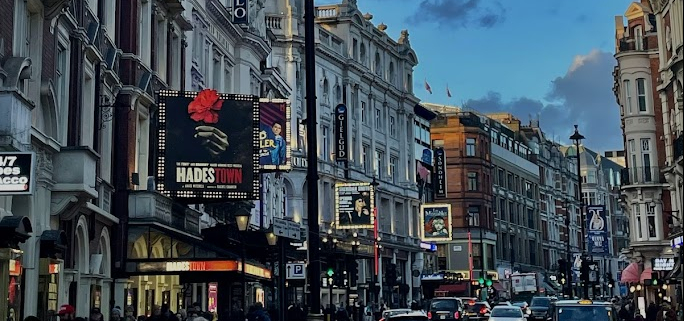
“There are no ordinary people. You have never talked to a mere mortal.”
A couple of days ago, I had the opportunity to visit one of my favorite author’s graves: C.S. Lewis. Lewis is most famous for writing the children’s fantasy series The Chronicles of Narnia. Lewis spent a good portion of his life as a strong atheist. However, after many serious conversations with his Christian friend J.R.R. Tolkien, Lewis eventually came to faith and became a great Christian apologist writer. During World War II, Lewis delivered numerous sermons at church, the most impactful being The Weight of Glory. The quote above is taken from this sermon.
The key point behind the quote is that ordinary people do not exist. Every single person you come across has a soul. The interactions you have with strangers and people off the street may seem boring or ordinary at first glance, but you don’t know the true impact you have on those people’s lives; only God does. Material things fade and disappear, but humans have souls and will live on in either eternal bliss or suffering. People are far greater than ordinary.
I have gotten to meet many great people from other cultures while studying abroad. Besides getting close to several Brits, I have gotten to know people from Australia, the Netherlands, Pakistan, and Italy. Particularly with my British friends, I have noticed interesting differences in greetings compared to those in the States. For example, whenever my British flatmates come into the kitchen, they say “you alright?” to me. At first, I was confused by this phrase. I was worried that I looked stressed or tired to them, and they wanted to know if I was genuinely okay. Quickly enough, I learned that the British phrase “you alright?” is the equivalent of saying “how are you?” to someone in the States. Another interesting greeting is in how Brits text one another. The British end almost all their text messages with XX. It is somewhat similar to how people in the States use emojis at the end of their texts. XX is a friendly or affectionate way to end a text, showing that you care about the other person you are texting.
Throughout my time here at the University of Roehampton, I have gotten to know one of my British flatmates, Holly, pretty well. Holly is in her second year at Roehampton. She lives in a small town about 20 minutes north of Bath, England. One thing that has brought Holly and me together is the fact that we are both studying Education.
Holly had to decide she wanted to be a teacher by age 16. In the UK, secondary school goes on until the age of 16. After that, students take the GCSEs, the US equivalent of taking the ACT. If students want to continue their education, they go on to A-levels from ages 16-18. A-levels are designed to help prepare students for University. Before going into A-levels, students must pick three areas they want to specialize in. In other words, they have to choose what majors and careers they want for their future. Holly said she always knew she loved kids and wanted to be a teacher, but having to choose at 16 was a little scary and daunting.
Uni (or University) is only three years for UK students, while in the US, it is typically an average of four years. While at Roehampton, Holly takes many methods courses on teaching. She also has to spend several weeks at her placement. Placement is very similar to MLC’s early field experience or clinical. Holly spends time in a classroom teaching, observing, and planning lessons. The only difference is that UK placement is more frequent and lasts longer than MLC’s clinical. Holly is given a placement every year at Uni. For her first year, she spent three weeks at placement; for her second year, she spent six weeks at placement; and for her third year, she will spend three months at placement. Every placement is with a different age level. Currently, Holly is with Year 4 students (third grade in the US). After Holly graduates Uni, she will go on to teach in a school. However, she must teach for two years after graduation to become a teacher “officially.”
Holly also loves to travel, just like I do. However, the travel philosophy is slightly different in the UK compared to the States. In the United States, most people go on vacation and travel to a different city in their home state or a different state. In the UK, people go on holidays (vacation). Brits tend to get longer holidays than people in the US. Holly has traveled to the US, France, Greece, Italy, and many other European countries. She is also planning a trip this summer to Tanzania in Africa. Whenever I ask Holly about cities in England or tell her about my day trips, she seems less familiar with those areas. She has hardly traveled to many of the cities in England, even though they are only a few hours away. Most people in the UK spend holidays in other countries and spend less time focused on traveling to their own country. This is due to the fact that Europe is so close and other countries are only a cheap flight away.
I love sitting down and having cultural conversations with Holly. Even though we are of a similar age and are going on the same career path, there are so many differences in both of our cultures and societies. After asking Holly numerous questions about the UK, she responded back with many questions about the US. I spent 20 minutes explaining the US healthcare system to her. She was baffled! In the UK, healthcare is essentially free. Citizens only have to pay a small tax fee every year, and they can go to the doctor and get medicine without having any extra charges.
I am grateful for the relationship I have formed with Holly. These cultural relationships I have formed here have opened my mind and perspective on the world around me. Sometimes we get closed off to thinking the world is only seen through our own eyes and viewpoint. Sharon Salzberg stated that “Life is like an ever-shifting kaleidoscope.” Billions of people live in the world. Billions of people have experienced different joys, pains, and journeys. Our own journey is a small fraction of the world’s kaleidoscope.
Highlights since my last post:
- I took a day trip to Cardiff, Wales
- I took a trip to Madrid, Spain
- I took a day trip to Oxford
- I saw Les Misérables at London’s West End
- I went to a Queen Park Ranger’s football (soccer) game
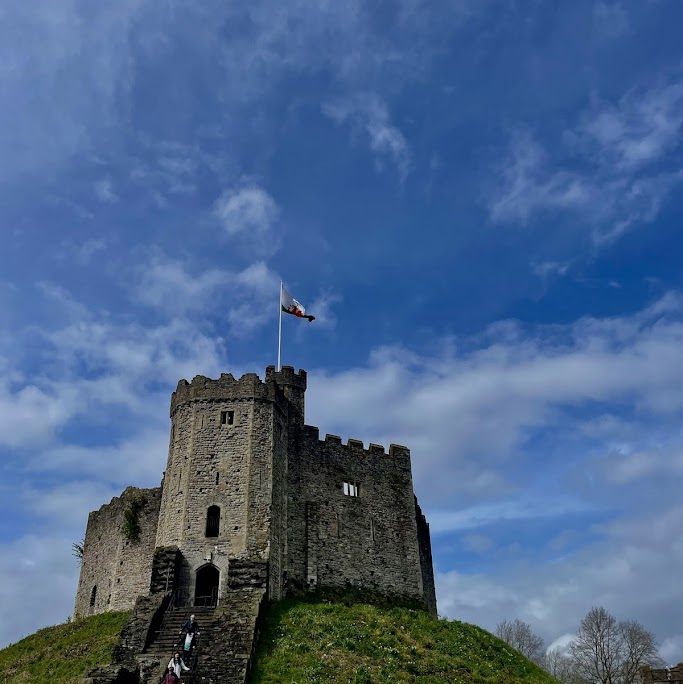
Cardiff Castle in Wales
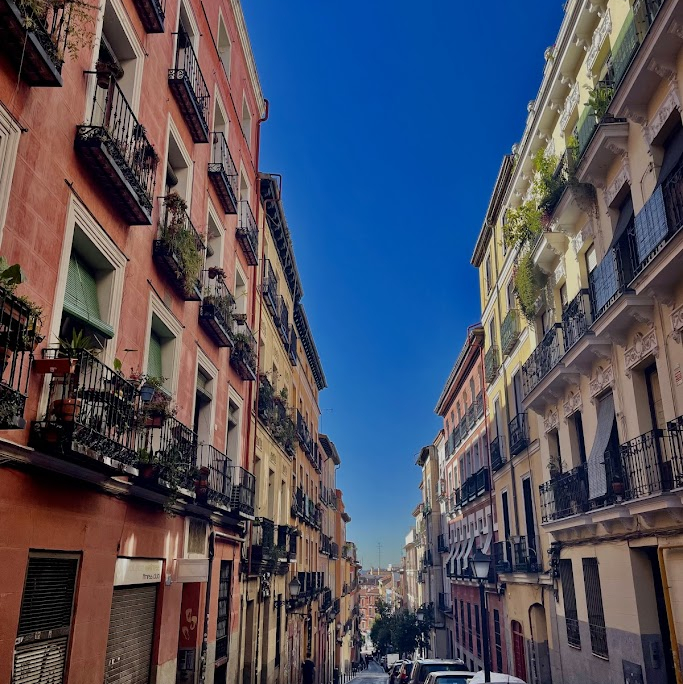
Street view of Madrid, Spain
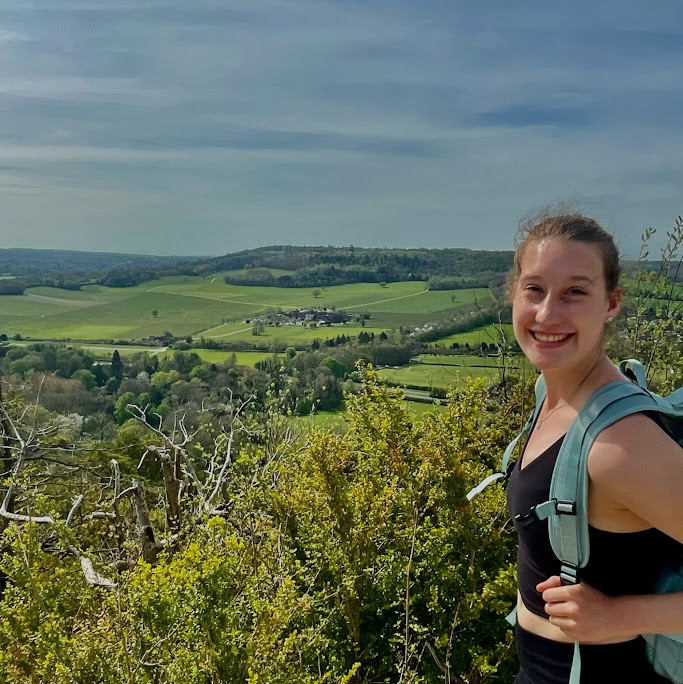
I went hiking in Surrey Hills National Park in England
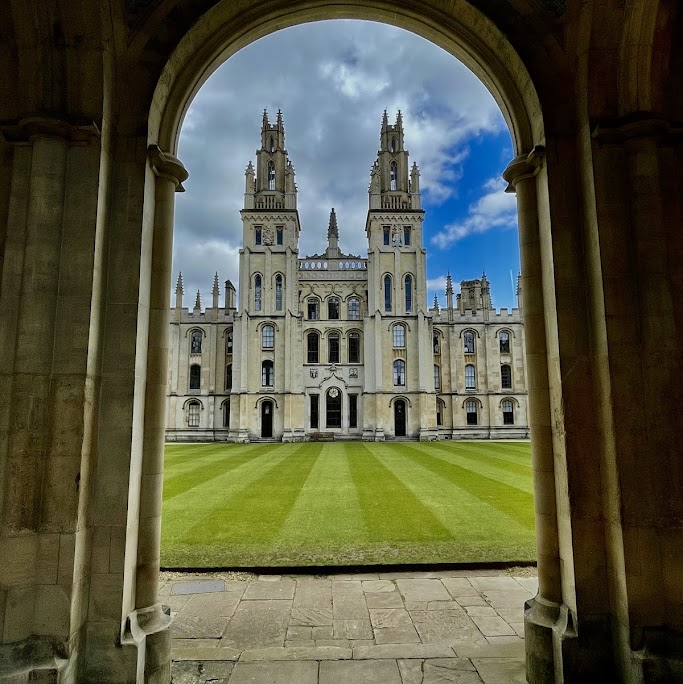
University of Oxford
Till we meet again,
Alison Foxen
